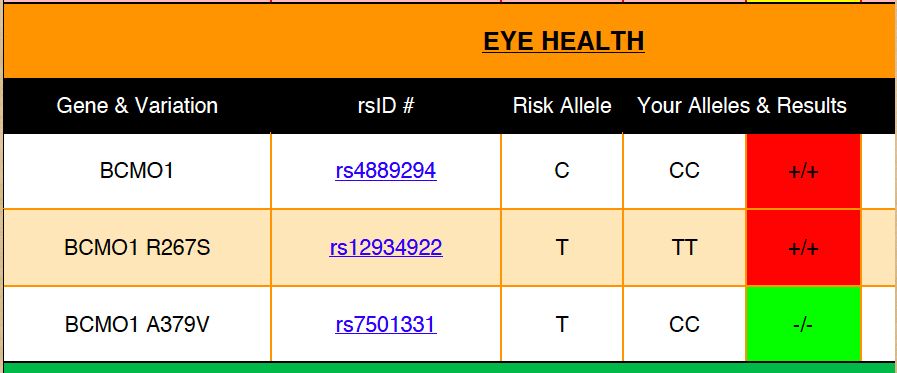What's On This Page?
ToggleDry eyes isn’t just one thing, it also includes eyes that feel gritty, irritated, or water too much. Dry eyes can also cause blurry vision and redness or burning. Today I’m outlining some causes (including some weird causes) as well as simple, affordable solutions.
I also have a VISION SUPPLEMENT that supports healthy eyes and healthy macular tissue.* You should check it out, it contains all the AREDs nutrients except copper which is known to drive cancer. It’s a great eye health supplement and available at my VITAMIN SHOP.
The Purpose of Blinking
Blinking your eyes allows a complex mixture of oil, water, and mucous (kind of like tears) to bathe the surface of your eye. These tears remove debris, provide lubrication, help reduce your risk of infection, and keep the surface of your eye clean. We take for granted this vital function, until we run out, or we develop an imbalance of the makeup of your tear mixture.
Lack of oil for your tears causes the watery layer of the eye to evaporate, making it feel dry and gritty. This is why you often see promotions for fish oil to help with dry eyes. It can improve levels of oil in your body and serves as a lubricant. The causes for reduced tear production vary.
6 Causes of Dry Eyes
1. Age matters. Anyone over the age of 50 who has gone through hormonal changes (both men and women) may experience more problems with dry eyes. It has to do with inflammation.
2. LASIK surgery. This is an unusual but possible cause of dry, irritated eyes.
3. Autoimmune disorders. It could be a direct assault to the tear glands or collateral damage. Regardless, dry eyes are associated with many autoimmune disorders including HASHIMOTO’s (read more about how this disease depletes 10 ESSENTIAL NUTRIENTS). Sjogren’s syndrome, rosacea, diabetes, rheumatoid arthritis, scleroderma and lupus. People with autoimmune disorders have high pro-inflammatory cytokine levels, thus there is a lot of inflammation (and the inflammation gets worse with age).
4. Vitamin A. You know this fat-soluble nutrient is required for night vision, but did you realize a deficiency of A causes the cornea to dry out and that leads to irritated eyes. People with a SNP in their BCMO1 gene cannot effectively convert beta carotene into vitamin A, so they become vitamin A deficient (unless you know your genes and you supplement with vitamin A). BCMO1 stands for beta-carotene oxygenase 1 and is responsible for the beta-carotene conversion in the human body.
I’ve included a screenshot below so you can see the exact SNP is and the associated alleles. The +/+ homozygous gene SNP (shown in red color) is the one indicating this person’s inability to convert beta carotene from foods into vitamin A. If you have a BCMO1 gene, I’m confident you need to supplement with some vitamin A, although the dose should be determined by your practitioner or yourself. I cannot estimate a dose for all of you because we are all unique.
Please realize that beta carotene is good in the plant world, whereas human beings need the vitamin A. Most people can convert this effectively, but not if you have the SNP which prevents or stalls the process. What I’m sharing with you is really cutting-edge so don’t expect every single one of your practitioners to fully understand or help you with it.
If you have an interested in genes, methylation and how other SNPs are affecting your health, read my in-depth article on the topic, just click here.

5. Medication. There’s no shortage of drugs that can dry you out! There are literally hundreds, at the top are antihistamines, which are intended to dry you out. That one is no surprise. I’ve taken just half of a Claritin (my go-to antihistamine) and by 5pm I was racing around the house looking for a little bottle of lubricating eye drops and a big bottle of water! I felt like a dog eating a peanut butter sandwich.
It’s not just antihistamines, but also decongestants, as well as mood enhancers. Many antidepressants, especially the Tricyclics (nortriptyline, amitriptyline and doxepin). Muscle relaxers are big-time dryers, for example cyclobenzaprine and baclofen. Sleeping pills, blood pressure medications and thiazide diuretics such as HCTZ are other eye dryers.
6. Thyroid Eye Disease. The inflammation associated with TED can affect the tear glands and the moisture balance of the eyes, leading to dryness. Dry eyes can feel uncomfortable, causing a gritty or sandy sensation, and in some cases, may lead to blurry vision.
Temporary Palliative Treatments
Palliative treatments such as natural tear drops are fine but your real goal is to reduce the inflammation and discover the underlying cause. For some of you the cause is easy to figure out, because it is medication, or it’s pollution or eye fatigue from reading computer monitors all day. Maybe someone smokes in your home, or you live in a windy or dry climate, these factors can all affect your eye health.
It’s pretty well known today that fish oils (omega 3 fatty acids) are able helpful for dry eyes. But you can do better.
5 solutions for dry eyes
- Eat black currants or take a supplement of black currant seed oil. This significantly increases your plasma concentration of GLA (gamma linolenic acid) which is an omega 6. It also enhances immune function.
- Place a small humidifier on your nightstand and sleep with it turned on; it can work wonders.
- Vitamin A especially good if you have a BCMO1 gene SNP.
- Warmth will help loosen up any hardened oil in clogged meibomian glands. Apply a warm compress to your eyes for 10 minutes, morning and bedtime. For some of you, it may be easier to find on Amazon a microwave-activated warm eye compress — there are many options including Thermalon®.
- Hyaluronic acid supplements can make a difference for your eyes (and skin), because this substance helps you hold on to moisture. It is taken as an oral dietary supplement and sold in health food stores or online. This is not an eye drop. Commercial supplements of hyaluronic acid often contain joint-supporting ingredients too since these supplements target people with arthritis, not dry eyes.
Summary
There are many causes of dry eyes, and many irritants. Sometimes you have to just look at your medication profile to find the offending agent, and sometimes it’s harder and you have to test your genes, or you have to do a trial and error experiment with various supplements.
Most of all, and this is really important, you should talk with a caring ophthalmologist who can help you determine the underlying cause and offer simple solutions. It’s okay with me if you want to print this article and take it. You can also share it with my new share buttons on the left side of the screen.

Suzy Cohen, has been a licensed pharmacist for over 30 years and believes the best approach to chronic illness is a combination of natural medicine and conventional. She founded her own dietary supplement company specializing in custom-formulas, some of which have patents. With a special focus on functional medicine, thyroid health and drug nutrient depletion, Suzy is the author of several related books including Thyroid Healthy, Drug Muggers, Diabetes Without Drugs, and a nationally syndicated column.


